五年前,正是我被气功迷得七荤八素的时候,有一天,静立中的我,身子突然旋转起来,越转越快,在我眼里,整个宇宙都在飞速旋转。肢体似乎被外力操纵,大脑作用完全失去,心里害怕极了。情急之下,大喊了声「师父」,于是轰然倒地,像一架失控的飞机。
师父远在边疆,根本不可能现身相救,是自己意识瞬然苏醒。尽管如此,心里仍是感谢师父,藉他之威,回复了我的镇定。
足下轻飘飘、轻飘飘,身子软绵绵、软绵绵,脑袋却晕晕忽忽,仿佛千万细胞仍在兴奋地回旋。这可不妙!大后天我就要奉命出差,去黄山「教」一个日本旅游团操练气功。这模样,别说去黄山,走在上海的马路上,都有生命之虞。差错是练气功中出的,功却是师父给的,就差不找师父找谁?只是师父远在千里之外,一时半刻解决不了问题,急切中生出一个念头:何不找师父的师父?
传说师父原无任何功能,有一天见了释迦牟尼佛玉雕照片,突然就有了某种特异功能,于是我自作聪明的认为佛陀是师父的师父。至于我后来怎样认识这个问题,是个另外的话题,说起来将是另一篇文章,因此暂时略去。
那是我第一次到玉佛寺,在门口碰到一个胖乎乎的中年妇女,正精神旺盛地向别人传授学佛经验。我听得有趣,习气所染,不由自主地问她有些什么功夫。
这位满面含笑的妇女眼神忽地一敛,凑到我耳旁轻声说:「我就是看出了什么,也不会对你说,这不是我们信佛的根本。」随即一本正经地问:「你念〈大悲咒〉吗?」「什么大北走?」我一时莫名其妙,以为是个没听说过的佛名。她不回答我,却对那些听众说:「我有一个朋友在美国,今年二十八岁,三年来什么也不吃,光靠喝大悲水,救治好了白血病……。」我听得更是云里雾里,这个大什么北,到底是人还是药?
走进玉佛寺,触目皆佛像,内在的恭敬不自觉地溢出来,融进群体的恭敬气氛中。轻飘飘的身子变得沉重,背靠着一根廊柱,我闭上了眼睛,我不会念什么经文,只好轻轻叨念:佛、佛、佛……香味悠悠地飘来,念佛声也悠悠地飘来,静穆中一个苍老的声音说:「你在念什么?」我睁开眼,一个眉须花白的僧人站在面前,慈眉善目地望着我。我动了个玩笑的念头,正色说:「我在念经。」
「什么经?!」咄咄逼人。「金刚经。」一慌乱,我又撒了第二个谎,脸立刻发起烧来。僧人摇了头,问道:「为什么不念〈大悲咒〉呢?」
我呆住了,今天是怎么回事?这三个字总跟着我?我说:「师父,我说老实话,我从来没读过什么经,也不懂您说的是什么。」 他说:「你跟我走。」
这位师父将我带进了僧房,拿出一本很厚的书,对我开讲起来。我懵懵懂懂,似懂非懂,仿佛婴儿初见世界。他突然转了话题,说:「我知道,你现在身体发软,头很晕,你是第一次来吧?」
我一个机伶,仿佛一个馋人在不相关的话里,突然听见「糖果」的字眼。思绪顿时集中起来,接下来的,开始往心里跑了。可是,他又不说了,从书里拿出了一本小册子,〈大悲咒〉他这样说。「大悲咒?」我兴奋起来,这个宝贝一定与我有缘,它再三再四地出现,定然利益我的身心。「你拿回去念吧,先念七遍。以后有空就念。」师父宽大的袖子轻轻一拂,我鞠躬而退,心中暗喜,倒挺像小说里的幸运者撞上了奇缘。当晚,我念了七遍,头一下不晕了,第二天起身,浑身轻快,头脑清醒,心胸如同被水冲过的蓝天。没想到世上还有如此灵验的宝贝。从此「大悲咒」三个字,刻进了我的心里。
孙悟空的如意金箍棒,变长变短变粗变细,为的是护身降魔,而我念诵〈大悲咒〉,究竟为了什么呢?倘若我不摔这一跤,〈大悲咒〉是否会出现在我的面前?世上摔跤者众多,是否都会遭遇〈大悲咒〉?与〈大悲咒〉有缘者是否都会有痛疾?〈大悲咒〉出现在何时何地?为何而有呢?
在我习惯念了〈大悲咒〉时,〈大悲咒〉的神秘力退却了;它的美丽,却由着它动听的音节显露出来,它的每一个音节都像一片花瓣。我曾面对着一朵鲜花,感到不可思议;〈大悲咒〉像一朵巨大的天花,同样地不可思议。
有一天,女儿告诉我苏青文集中有一篇关于〈大悲咒〉的小说,我有些奇怪,但还是将这篇《胸前的秘密》找来读了。小说写一个男人因为妻的不贞,恨透了女人;怕女儿长大像母亲,竟将女儿推下山去,自己又离家当了兵。军队败退时,别人抢劫,他却奸淫妇女,以此报复女人。在又一次暴行中,他良心发现,落荒而逃。不知不觉中,来到一座寺庙;庄严的佛像,使他感到罪恶的恐怖,于是要求出家。老和尚不答应,只教他念〈大悲咒〉消灾远祸。他后来喜欢上一个长得像他女儿的女孩子,临死前送给这个女孩一个挂件,里面是他念了十万遍的〈大悲咒〉。
这是一个放下屠刀立地成佛的故事。苏青展示了人生的绝望和希望,〈大悲咒〉象征了安抚的力量。我想苏青也是难以知晓〈大悲咒〉的,我们无法以自己的凡情,测度这种超越了思惟的圣言,但是有缘者都能受到一种感召,这感召是巨大的,我们只能用「大慈大悲」四字勉强概括。
说起大慈大悲,就想起观世音菩萨,正是这观世音菩萨为我们带来的〈大悲咒〉,说起来还有一段美丽感人的故事呢!当年释迦佛在世时,有一次准备给弟子们演说佛法,弟子之一的观音在会众中密放神通光明,剎时山河大动,金光遍布。一位弟子合掌问佛;佛告诉大家,今天的大会中有一位菩萨,名观世音自在,从无量劫来成就大慈大悲,善能修习无量陀罗尼门,刚才的神通就是他的作为。这时,观世音起身,对佛说他有〈大悲心陀罗尼咒〉,能得寿命、得富饶、灭恶业、离障难,增长一切善法,远离一切怖畏,满足一切希求。佛对他说:此咒面世的时机已到,应该速说,以利众生。于是,〈大悲咒〉就这样公开了。
那么观世音又是从何处得到〈大悲咒〉的呢?原来在过去无量劫中,他听闻了名为千光王静住如来的教导,那位如来对他演说了〈大悲咒〉,并摩他顶,要他持此心咒,为未来恶世众生作大利乐。当时,观音修行仅在初地,一闻此咒,便超至八地境界。观音心中欢喜,即发誓言:如果自己将来能利益众生,现在就生出千手千眼;言毕,千手千眼具足,十方千佛都放光明以触他身。他一下超无数亿劫微细生死,所生之处,总在佛前,并且莲华化生,不受胎藏之苦。多少劫来,他不怠慢,一直持诵此咒。他向会众保证,除了对〈大悲咒〉起疑不信者,诵持〈大悲咒〉而堕三恶道、诵持〈大悲咒〉却不生佛国、诵持〈大悲咒〉仍不消灭罪障,他誓不成正觉。
此咒全名为「广大圆满无碍大悲心陀罗尼」。后世之人在诵持前,加上观音名号,于是,此咒变为「千手千眼观世音菩萨广大圆满无碍大悲心陀罗尼」,简称「大悲咒」。
我曾购得一盘〈大悲咒〉磁带,是上海声像出版社所出,语音圆润连贯,一气呵成,那音节如同清风拂面,却又有强力将人定在静中。后来我又在友人处听到另一盘〈大悲咒〉,唱腔很足,音调低沉,如同空中滚雷,有一种感染人的掀动感。总之,不论何种唱诵法,都是好听,因为它流自慈悲心中。
有一回,一位朋友说,只听见〈大悲咒〉在啦啦啦的,真不知它究竟在说些什么。当初也有人向观音菩萨请教大悲咒的形状相貌,观音菩萨是这样回答的:大慈大悲心是;平等心是;无为心是;无染着心是;空观心是;恭敬心是;卑下心是;无杂乱心是;无见取心是;无上菩提心是。这些心即是陀罗尼相貌。
重新温习这些话,又一次被智慧之雨滋润。我们和观世音菩萨相差多远呢?无论多远,有〈大悲咒〉作筏,我们都能渐渐接近美丽的彼岸。那位中老年妇女说的大悲水,本就在生活之中;当我们渴了的时候,我们知道找怎样的水喝。在我们生下来的时候,我们就已经具备了趋向清泉,回避浊流的本能。我们因此得遇〈大悲咒〉,是非常自然的事情呀!
Five years ago when I was very much into Qigong, one day I was standing there when my body started to turn around. The turning was so fast I felt that the whole universe was spinning. My limbs seem to be controlled by external forces, and my brain didn't seem to be functioning normal-ly. I was really scared. Out of desperation I screamed, "Teacher!" and felt like an airplane out of control.
My teacher was far away; there was no way he could come have rescued me. I recovered on my own. However, I am still grateful to him, for he did help me regain my calm.
My feet and body felt soft and mushy, and my brain was dizzy as if the cells were still spinning. This was not a good sign, for I needed to go to Huangshan two days form then to teach a Japanese tour group how to practice Qigong. In my situation, I could run into trouble even walking in Shanghai, not to mention travelling afar. The accident happened when I was practicing Qigong. I needed to find my teacher to help me out, but he was far away and could not help me. In that moment of desperation a thought came to my mind: "Why not get help from my teacher's teacher?"
Legend had it that my teacher gained his spiritual powers on the day he saw a jade image of Shakyamuni Buddha. I jumped to the conclusion that Shakyamuni Buddha was my teacher's teacher. How I came to this conclusion is a subject for a later discussion.
That was the first time I visited Jade Buddha Monastery. I met a chubby, middle-aged woman who was telling people about her experience in practicing Buddhism. Her talk caught my interest and I asked her if she had any gongfu (spiritual skills).
The smiling woman looked at me seriously and whispered in my ears: "Even if I had gongfu, I wouldn't let people know; it would go against the basic rules for practicing Buddhism." Then she asked me seriously, "Do you recite the Dabei Zhou (Great Compassion Mantra)?"
"Who is Dabei Zhou(Great Compassion Mantra)?" I was very confused, thinking that was the name of a Buddha I'd never heard of.
She didn't answer me but told the audience: "My good friend who lives in the United States is twenty-eight years old. For the past three years she has relied solely on Dabei water to cure herself of leukemia." I was even more confused, wondering whether she was talking about a person or a medicine.
Upon entering into Jade Buddha Monastery, I saw nothing but the Buddha statute,which, along with the whole environment, naturally inspired solemn sincerity. My body felt weak and heavy. I leaned against a pillar and closed my eyes. I didn't know how to recite any mantra or Sutra, so I just recited quietly, "Buddha, Buddha, Buddha..." I inhaled the fragrant air while listening to the sound of the Buddha's name. An old man asked in the silence, "What are you reciting?" When I opened my eyes, an old monk with white eyebrows and beard was standing before me and gazing at me kindly. I wanted to kid him, so I said, "I was reciting a Sutra."
"Which one?" He didn't let me off easily.
"The Vajra Sutra." This was my second lie, and my face was red.
The monk shook his head and asked, "Why don't you recite the Dabei Zhou?"
I was stunned, for it seemed these three characters were following me all the time. I said: "Master, I have to confess that I've never read any Sutra, and I don't understand what you're talking about."
"Follow me," he said.
He took me to his room, brought out a very thick book, and started to lecture. I didn't quite get what he said, and I felt like a baby exploring the world for the first time. Suddenly he changed the topic and said, "I know your body feels weak and your head is dizzy. Is this your first visit?"
I felt inspired, like someone who hears the word "candy" in an unrelated statement.
I immediately concentrated my mind, but he stopped talking, pulled out a booklet from the thick book, and said "Dabei Zhou."
"Dabei Zhou?" I was so excited and thought I must have an affinity with it, for it seemed to have borught definite benefit to my body and mind so many times
"Why don't you take it home and recite it seven times, and then recite whenever you have time." The monk dismissed me with a wave of his sleeve. I bowed to take my leave and felt very happy, like some lucky person who has just had an adventure. That evening I recited the mantra seven times, and my dizziness went away. When I rose the next morning, my body was smooth and my head was clear, and my whole chest felt like the blue sky washed with water. I never knew there existed such a jewel like this in the world. From then on, the Dabei Zhou was ingrained in my mind.
Monkey's magic rod can shrink and expand to protect itself and control the demons. Why was I reciting Great Compassion Mantra? Had I not fallen, would I have encountered it? Do all the many people who fall in this world get to encounter it? Would anyone who has affinities with this mantra suffer from sickness? When and where will the mantra appear, and why?
Once I memorized the mantra and its mystery disappeared, its beauty began to manifest in the sounds of recitation. Each rhythm is like a petal, and the entire flower is inconceivable. The Great Compassion Mantra is like a huge, inconceivable, heavenly flower.
One day my daughter told me there was a novel regarding the mantra in Su Ching's collection. I was surprised and found the article "The Secret of the Pendant." The story goes like this: A man hated all women because his own wife was unfaithful. Fearing that his daughter would be like his wife, he pushed her off a cliff, and then left home to join the military. When the army was retreating and other people were looting goods, he was raping women in vengeance. Later, regretting his behavior, he went into a monastery, where the sight of the solemn statues made him frightened of his own offenses. He requested to leave home, but the abbot did not permit it. The abbot taught him to recite the Great Compassion Mantra so that he would be safe from disasters. Later he fell in love with a girl who looked like his daughter. Before he died, he gave the girl a pendant containing the mantra, which he had recited ten thousand times.
This story shows that once you give up your butcher's knife, you can become enlightened. The author illustrated the desperation and hope of human life, and the mantra symbolized a soothing power. I doubt the author truly understood the mantra, but people with affinities are called, and the calling is so strong that it can only be described as "great kindness and compassion."
Speaking of great kindness and compassion reminds me of Guanyin Bodhisattva, who gave us the mantra with a beautiful story. Once when Buddha was ready to preach, his disciple Guanyin Bodhisattva, by his spiritual powers, emitted light which shone upon the mountains and rivers. When another disciple placed his palms together and asked the Buddha the cause for the light, the Buddha told everyone that the light was the work of a Bodhisattva in the assembly named One Who Contemplates Sounds at Ease, who accomplished great kindness and compassion countless ages ago, and who skillfully practiced infinite dharani doors. At that time, Guanyin Bodhisattva stood up and told the Buddha that he had attained the Great Compassion Dharani Mantra, which can prolong life, bestow wealth, diminish bad karma, dispel obstacles and fear, increase good dharmas, and fulfill all wishes. The Buddha replied that it was time to speak the mantra to benefit living beings. That's how we came to know of the mantra.
How did Guanyin Bodhisattva learn of the mantra? Limitless eons ago, he heard the teachings and received the mantra from Thousand Lights King Peacefully Dwelling Thus Come One. That Buddha anointed his head and asked him to uphold the mantra to benefit living beings in the world. Guanyin Bodhisattva, who was at the First Ground, immediately attained to the Eighth Ground upon hearing the mantra. Guanyin Bodhisattva was joyful, and vowed that if he could benefit living beings in the future, he would attain a thousand hands and a thousand eyes. Immediately after making that vow, he gained a thousand hands and eyes, and thousands of Buddhas in the ten directions shone their light upon him. He transcended limitless eons of birth and death, and was always born at the time of a Buddha. He was born from a lotus, and had no suffering. For countless eons, he has been upholding the mantra without cease. And he has vowed that he will not attain enlightenment if anyone who believes in and recites the mantra falls into the three evil paths instead of going to the Buddhalands, or is unable to eliminate their karma.
The mantra's full name is "The Vast, Great, Perfect, Unobstructed Great Compassion Dharani." Later on people added Guanyin Bodhisattva's name to the title, making it "The Vast, Great, Perfect, Unobstructed Great Compassion Dharani of Guanyin Bodhisattva, Who Has a Thousand Hands and a Thousand Eyes." It is called the "Great Compassion Mantra" for short.
I once bought a tape of the mantra made by a company in Shanghai; the sound was smooth and continuous, and the rhythm was like a breeze touching my face, yet so powerful that it held me mesmerized. Later on, I heard another tape of my friend's, also very touching, but with a fancier rhythm and a deeper tone, like rolling thunder. All in all, no matter how the mantra is presented, it sounds good because it comes from kindness and compassion.
Once a friend commented that he heard nothing but "la la la" in the mantra. Someone once asked Guanyin Bodhisattva about the characteristics of the Great Compassion Mantra. The Bodhisattva replied:"The mind of great compassion is a mind of equality, no gain, no attachment, emptiness, respect, modesty, no disorder, no substitution, and unsurpassed Bodhi; these are the characteristics of the dharani."
Going through these comments, I have been moistened by the rain of wisdom again. How far away are we from Guanyin Bodhisattva? No matter what the distance is, using the Great Compassion Mantra as our vessel, we will be able to reach the beautiful shore one day. The middle-aged woman who talked about the Great Compassion water is alive among us; when we are thirsty we know what kind of water to drink. We are born with the instinct to search for clear spring water and avoid dirty water. Therefore it is very natural that we know the mantra.
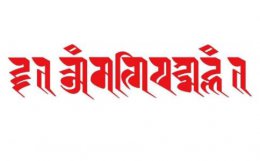
案例一: 念文殊心咒的感应 我是一个佛法忠实的...
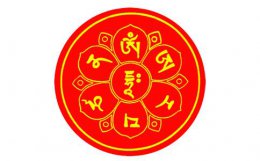
今天我想跟大家分享一个我自己的切身经历的神奇...
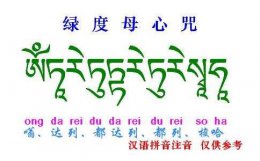
今年5月份,也就是2018年5月份开始念绿度母心咒,...
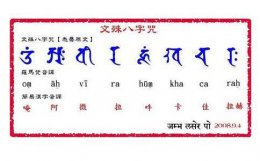
南无大智文殊师利菩萨 ! 我知道文殊菩萨八字真...
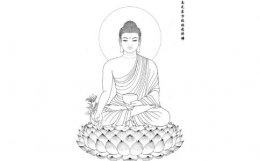
药师佛可以改变你的一切这是毋庸置疑的包括身高...
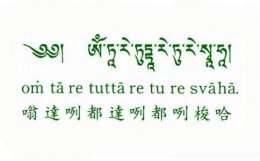
我亲身经历。希望大家坚持持咒。给大家增加信心...
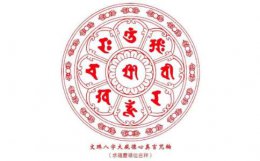
我平时有诵准提神咒,文殊一字护身咒和文殊大威...
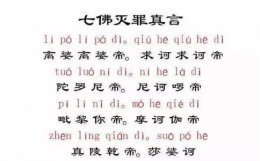
就在刚才,念了可能有两百遍的七佛灭罪真言吧,...
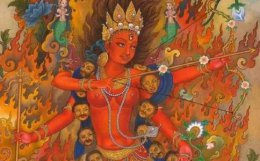
念诵作明佛母心咒有一段时间了,现在想把我的感...
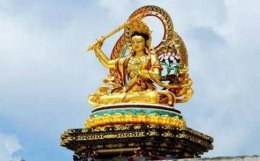
说来我学习佛法也近2年了,其中经历许多事情,我...
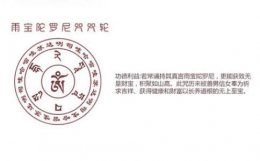
我几年前就要戒除邪淫,也念过佛号、大悲咒,也...
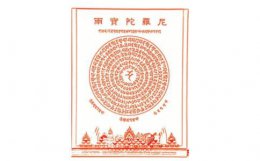
末学是一个业障深重的人,很多年财运不顺,去年...
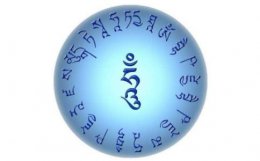
前两个月( 2008年五月)我犯了胃病,疼的要死,...

师兄总是爱问我诵雨宝咒的感应,诵了雨宝咒钱财...
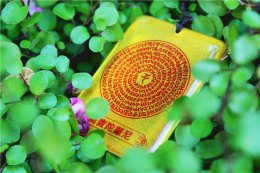
说说自己诵雨宝咒真实的成果,两年前,当时痛苦...
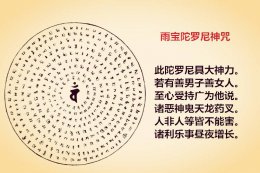
本来是将信将疑,看到各位师兄都在推荐念雨宝陀...

先生和孩子吃了一顿牛肉餐,惹了要经者回家,全...
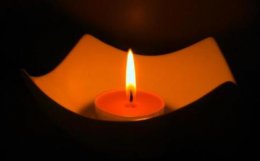
有一段时间由于工作相对比较清闲,我日日念佛,...
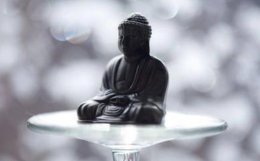
我们家于2019年8月搬入新家。搬家时,将一张搁置...

这是一件发生在我外孙子身上的事,也就是今年夏...